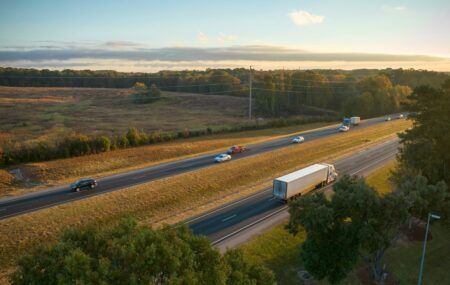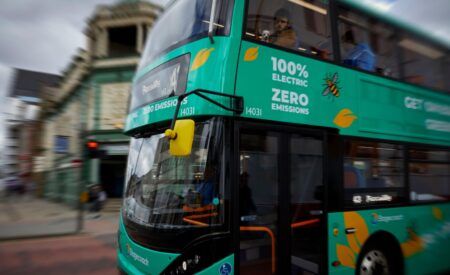At the World Cities Summit in Singapore, Siemens presented its new City Air Management (CyAM) software system that can help cities remedy the growing problem of air pollution and the associated lack of compliance with emission-control thresholds.
CyAM is a cloud-based software suite with a dashboard that displays real-time information on the air quality detected by sensors across a city, and predicts values for the upcoming three to five days. These air-quality forecasts are prepared with the aid of algorithms that tap into an artificial neural network and draw on historical and current data on air quality, as well as weather and traffic patterns.
Mayors and other city decision makers can then use this data and a combination of potential solution measures to derive concrete recommendations for action, and define measures that help reduce concentrations of nitrogen oxides and atmospheric particulate matter.
CyAM can, for example, use the data acquired by sensors to recommend a selection of actions chosen from a set of 17 measures that can be implemented at short notice in order to improve air quality. Examples of such measures include establishing low-emission zones (LEZs), reducing speed limits, and offering local public transportation services at no charge for a limited period.
Cities can subsequently integrate insights gained from these actions into their medium- and long-term strategy planning. CyAM is based on MindSphere, Siemens’s cloud-based, open operating system for the Internet of Things (IoT).
Siemens has signed a Memorandum of Understanding (MOU) with the developers of the new Sino-Singapore Guangzhou Knowledge City (SSGKC) in China, to jointly deploy and enhance the CyAM software system in the world’s first implementation of the technology.
SSGKC is to be developed as a sustainable and eco-friendly city and knowledge hub that will have a population of 500,000 people within the next 15 to 20 years. The parties will integrate CyAM into the co-developed Green City Digital Platform, which is a software management and digitization platform that uses big data analytics and artificial intelligence (AI) to provide customized and economically feasible solutions for sustainable urban development and air quality control, in line with SSGKC’s urban planning policies and requirements.
“Data is really just raw material. It unleashes its full potential only when we collect it correctly, analyze it correctly, draw the correct conclusions from it, and simulate and run through the resulting options,” said Roland Busch, Siemens’ chief technology officer.
“This is what makes City Air Management such a unique software solution. It is currently the smartest tool available for cities that want to improve their air quality.”




